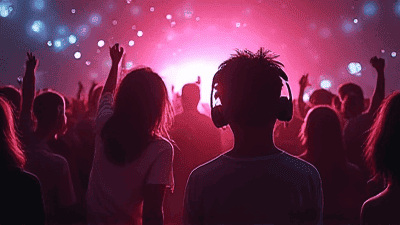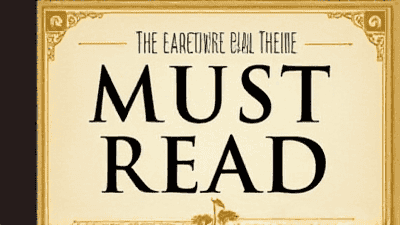
Hip hop music has been a dominant force in the music industry for decades, with its roots dating back to the 1970s in the Bronx, New York. Over the years, hip hop has evolved significantly, with new sub-genres, styles, and artists emerging to shape the sound of the genre.
The Rise of New Sub-Genres
Trap and Drill
One of the most significant developments in hip hop in the 2020s has been the rise of trap and drill music. Trap music originated in the Southern United States, particularly in Atlanta, Georgia, and is characterized by its heavy use of 808 drums and often dark, gritty lyrics. Drill music, on the other hand, originated in Chicago and is characterized by its fast-paced, aggressive flow and often violent lyrics.
Artists such as Lil Baby, Gunna, and Young Thug have been instrumental in popularizing trap music, while artists such as Chief Keef, Lil Durk, and Fredo Santana have been key figures in the drill movement. The success of trap and drill music has led to a proliferation of sub-genres, including melodic trap and emotive drill.
Emo-Rap and SoundCloud Rap
Another significant development in hip hop in the 2020s has been the rise of emo-rap and SoundCloud rap. Emo-rap is a sub-genre that combines elements of hip hop with emo music, characterized by its use of melodic flows and often introspective lyrics. SoundCloud rap, on the other hand, is a sub-genre that originated on the SoundCloud platform and is characterized by its use of lo-fi production and often experimental lyrics.
Artists such as XXXTENTACION, Juice WRLD, and Lil Uzi Vert have been instrumental in popularizing emo-rap, while artists such as , City Morgue, and Ghostemane have been key figures in the SoundCloud rap movement. The success of emo-rap and SoundCloud rap has led to a proliferation of sub-genres, including cloud rap and hyperpop.
Conscious Rap and Afrobeat
In addition to the rise of new sub-genres, hip hop in the 2020s has also seen a resurgence of conscious rap and Afrobeat. Conscious rap is a sub-genre that focuses on socially conscious lyrics and often incorporates elements of jazz and soul music. Afrobeat, on the other hand, is a sub-genre that combines elements of hip hop with traditional African music, characterized by its use of polyrhythms and often socially conscious lyrics.
Artists such as Kendrick Lamar, J. Cole, and Chance the Rapper have been instrumental in popularizing conscious rap, while artists such as Wizkid, Davido, and Tiwa Savage have been key figures in the Afrobeat movement. The success of conscious rap and Afrobeat has led to a proliferation of sub-genres, including jazz-rap and Afrobeats.
The Impact of Social Media on Hip Hop

The Rise of Social Media
Social media has had a profound impact on hip hop in the 2020s, with platforms such as Instagram, Twitter, and TikTok providing a new way for artists to connect with fans and promote their music. Social media has also enabled artists to build their own brands and create their own content, often outside of the traditional music industry.
Artists such as Lil Nas X, Billie Eilish, and Post Malone have been instrumental in leveraging social media to build their careers, often using platforms such as Instagram and TikTok to promote their music and connect with fans. The success of social media in hip hop has led to a proliferation of new artists and sub-genres, as well as a shift towards more DIY and independent approaches to music.
The Democratization of Music
Social media has also democratized music, enabling artists to reach a global audience without the need for traditional record labels or industry connections. This has led to a proliferation of new artists and sub-genres, as well as a shift towards more DIY and independent approaches to music.
Artists such as XXXTENTACION, Juice WRLD, and Lil Uzi Vert have been instrumental in leveraging social media to build their careers, often using platforms such as SoundCloud and Instagram to promote their music and connect with fans. The success of social media in hip hop has also led to a shift towards more experimental and avant-garde approaches to music, as artists are able to push the boundaries of what is possible in the genre.
The Emergence of New Artists
The Rise of New Artists
The 2020s have seen the emergence of a new generation of hip hop artists, many of whom have leveraged social media to build their careers and connect with fans. Artists such as Lil Baby, Gunna, and Young Thug have been instrumental in popularizing trap music, while artists such as , City Morgue, and Ghostemane have been key figures in the SoundCloud rap movement.
Artists such as Kendrick Lamar, J. Cole, and Chance the Rapper have been instrumental in popularizing conscious rap, while artists such as Wizkid, Davido, and Tiwa Savage have been key figures in the Afrobeat movement. The success of these new artists has led to a proliferation of new sub-genres and styles, as well as a shift towards more experimental and avant-garde approaches to music.
The Impact of New Artists on Hip Hop
The emergence of new artists has had a profound impact on hip hop, with many of these artists pushing the boundaries of what is possible in the genre. Artists such as Lil Nas X, Billie Eilish, and Post Malone have been instrumental in leveraging social media to build their careers, often using platforms such as Instagram and TikTok to promote their music and connect with fans.
The success of these new artists has also led to a shift towards more DIY and independent approaches to music, as well as a proliferation of new sub-genres and styles. This has enabled artists to experiment with new sounds and styles, often incorporating elements of other genres such as rock, pop, and electronic music.
Conclusion: The Evolution of Hip Hop in the 2020s

The 2020s have seen significant developments in hip hop, with the rise of new sub-genres, the impact of social media on the genre, and the emergence of new artists. The success of trap and drill music, emo-rap and SoundCloud rap, conscious rap and Afrobeat, and the democratization of music have all contributed to a proliferation of new artists and sub-genres, as well as a shift towards more DIY and independent approaches to music.
As hip hop continues to evolve, it is likely that we will see even more experimentation and innovation in the genre, as artists continue to push the boundaries of what is possible in hip hop. Whether you are a fan of traditional hip hop or are interested in exploring new sub-genres and styles, there has never been a more exciting time to be a part of the hip hop community.








